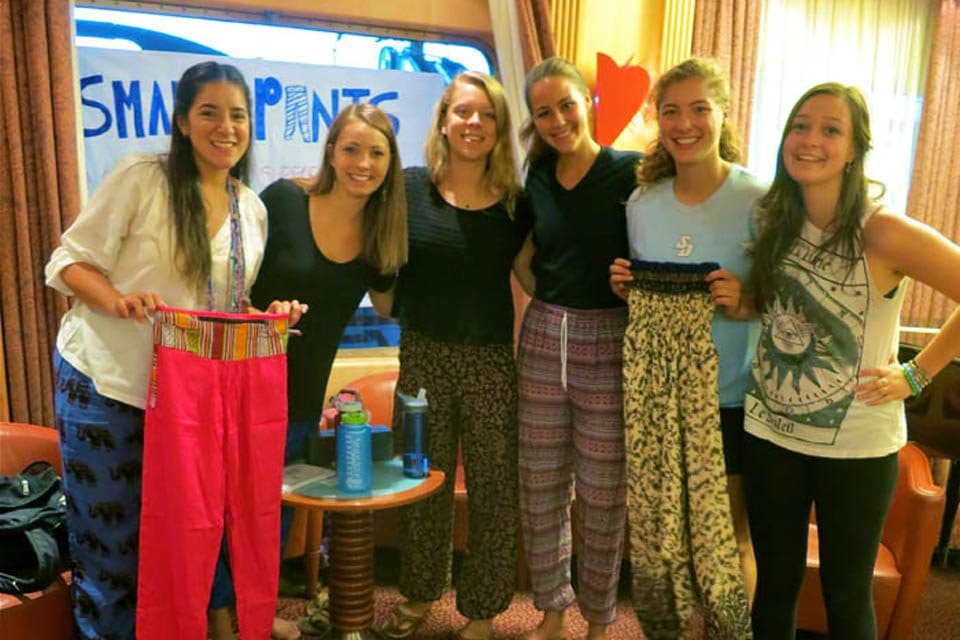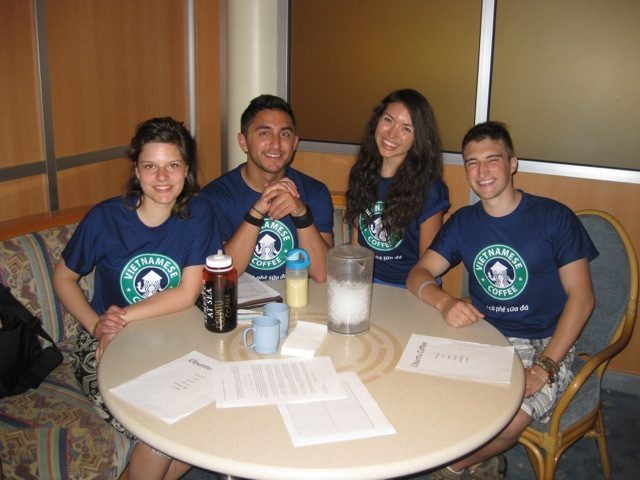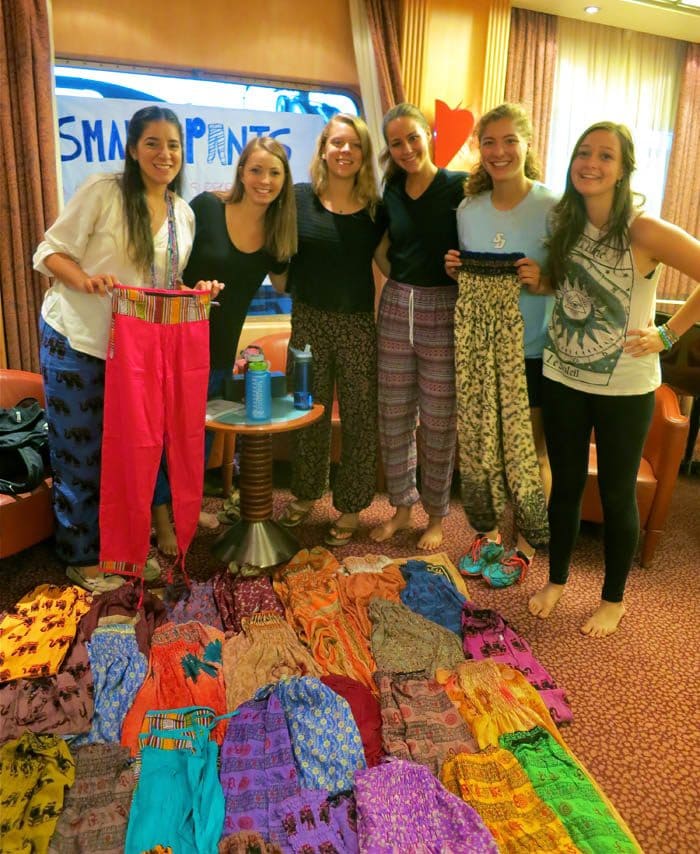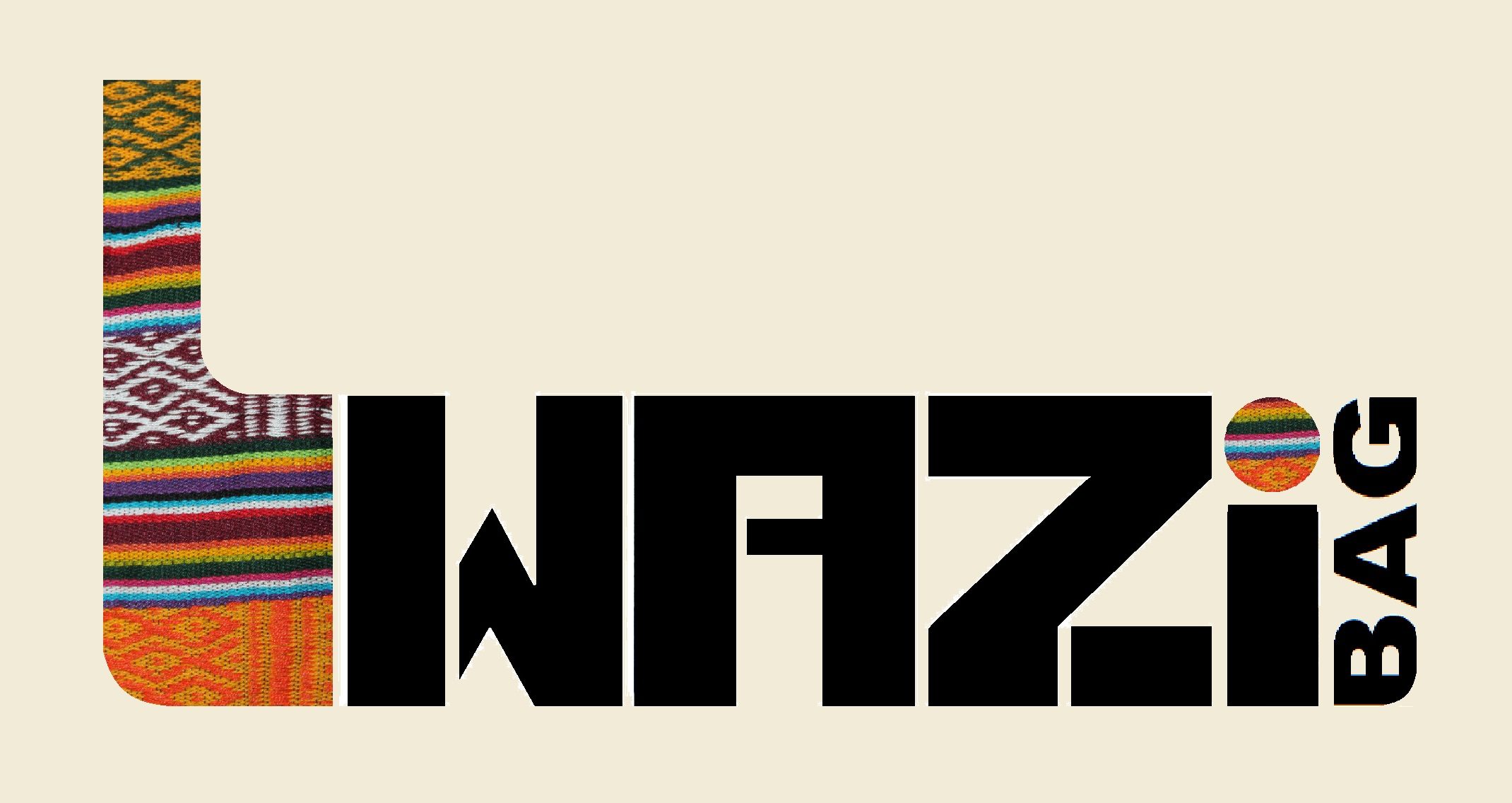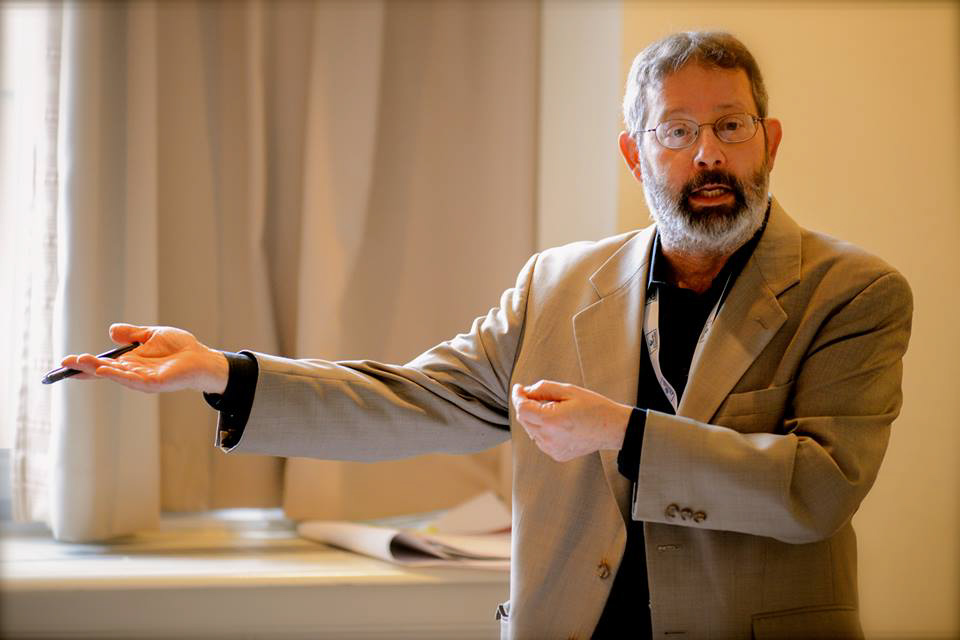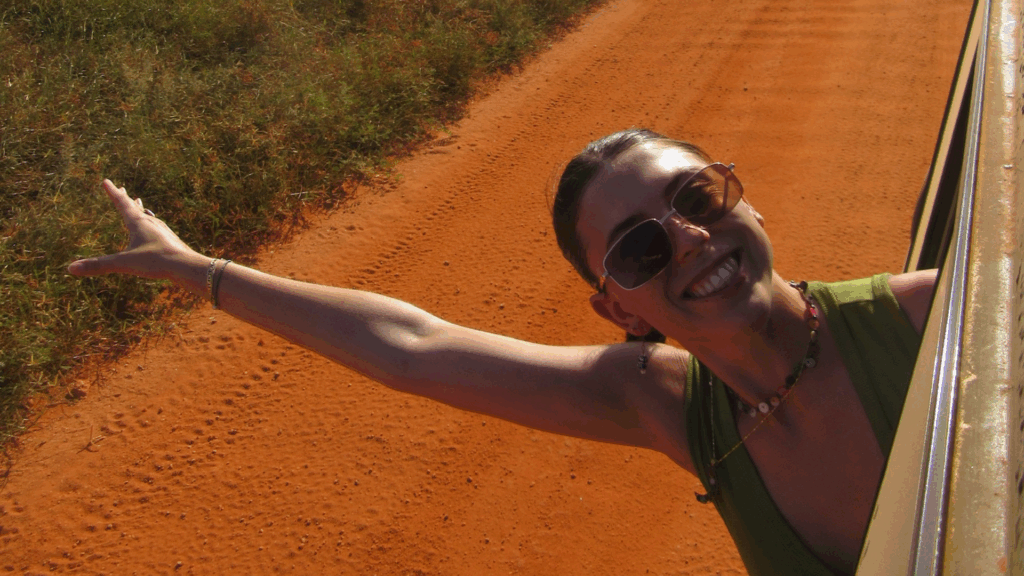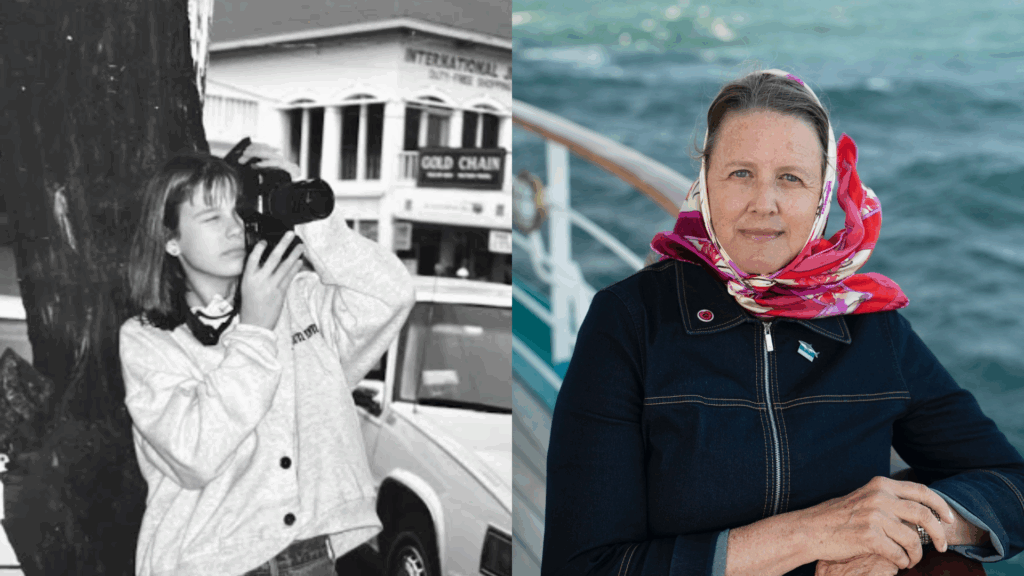Social entrepreneurship has been at an all time high on the MV Explorer during this semester. A class solely dedicated to responsible business has been added to the curriculum and Professor Christine Mahoney, whom teaches the Sustainable Global Entrepreneurship course as well as oversees the Social Venture Challenge for the Spring 2014 semester, encourages all students to think “outside of the ship” and brainstorm projects that can aid the greater good.
Quickly rising towards the call to action, several ventures began making waves just within the first month at sea. Inspired by in-port experiences, guest speakers, and other shipboard collaborations, students joined together to design scalable and attainable models to submit to the Social Venture Challenge held at the end of the voyage where the winning teams received funding towards their project. Yet regardless of a prize, it is clear that a spirit of social responsibility has spread throughout the ship and opened the eyes of students as they travel across the globe.
Ubuntu Coffee: A Cup of Care
Ubuntu Coffee was started by Semester at Sea students Carla Cremer, Seth Martin, Madeline Keulen, and Nathan Swan who wanted to make a difference through sharing their passions: entrepreneurship, cultural exchange, and social good. While in Vietnam they discovered the country’s local coffee, a bold, flavorful roast accompanied by creamy sweetened condensed milk. As they spoke to local producers and vendors about their trades and lives, the students knew they wanted to be able to further share these people’s stories with others around the world. Then it hit them, what better way to do this than to foster this cultural exchange over the world’s best coffee and tea?
The four students hit the ground running, purchasing local coffee beans and supplies around Ho Chi Minh City. They made plans to sell the coffee on the ship with a percentage of proceeds going towards the next port on the voyage. As Ubuntu grows, the students hope to purchase all fair-trade coffee, and start an Ubuntu Fund that will enable investments to be made in each Ubuntu partner’s local community.
In the longer term, they hope to open an Ubuntu Caf√© back in the United States where people can come in to learn about Ubuntu’s partners while discovering the culture of these people’s coffee. The group also looks forward to hosting events that promote diplomatic exchanges and foster the growth of social entrepreneurship.
Until then, the Ubuntu team is keeping busy planning shipboard Ubuntu Caf√© events where students can purchase coffee and tea, participate in selecting fund recipients, share experiences, and enjoy each other’s company.
Smartypants: Pants with a Purpose
If you take a walk through the corridors of the MV Explorer, it’s clear to see that “elephant pants” from places like Vietnam, Burma and India have become a staple in the daily style of SAS voyagers. But what most simply saw as a comfy pair of pants, a few entrepreneurial spirits saw as an opportunity.
While traveling on Semester at Sea, San Diego State University seniors Mackenzie Martin and Brittany Becker witnessed firsthand the differences between the lives of women who received an education versus those who did not. They recruited friends who reciprocated their desire to empower women around the world, and the group of young women began brainstorming ideas for a social venture that could help to alleviate this issue.
Here entered the pants. Recognizing both the abundant supply in port and the vast popularity among the shipboard community, the group realized that the brightly-colored pants were a perfect outlet for their cause. Thus, Smartypants was born. The concept was simple: sell a pair of elephant pants and help fund educational opportunities for women around the globe. It was unanimously decided that 20 percent of profits would go directly to the Mahila Dakshata Samithi Degree College for Women in Hyderabad, India; an institution started by a fellow SASser’s grandmother and where some of the women had the opportunity to visit during their stay.
Setting up a makeshift shop in the center of the ship’s common lounge, the Smartypants team tested the waters for their first round of sales. As word of “$10 elephant pants” spread throughout the halls, the girls’ inventory quickly evaporated ‚Äì their debut had been a success.
Coffee (2+2) A Cause: A Refreshing Call to Action
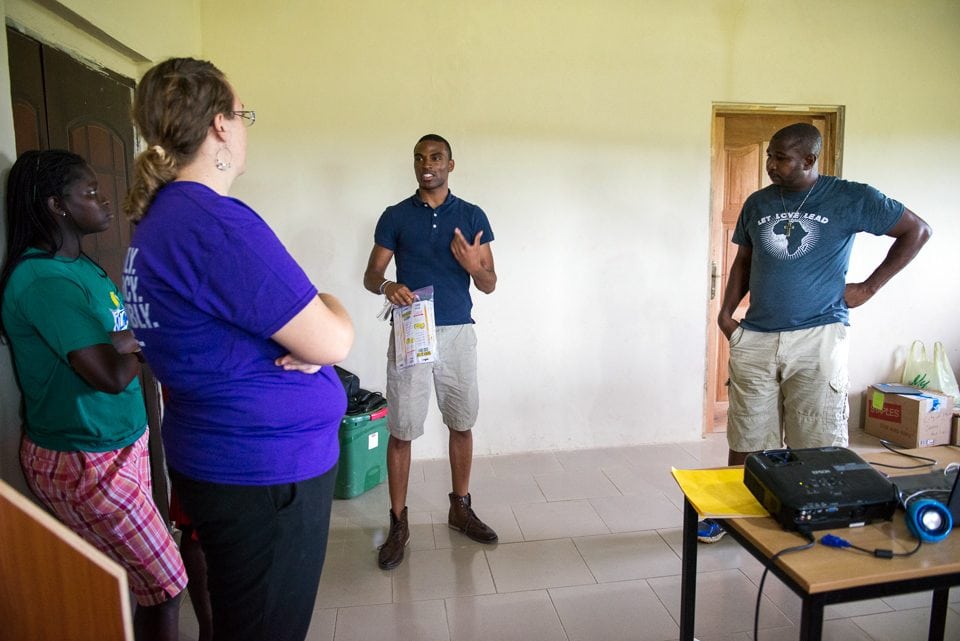
While in need of caffeine during an afternoon of studying, Morgan State University senior Brian Stewart realized that his hot cup of coffee was neither helpful nor refreshing. Brian decided to chill the coffee overnight in his fridge – and Coffee (2+2) A Cause was born.
Developing a concept that sustains charity and on-hand cash, the venture Coffee (2+2) A Cause offers its product on the MV Explorer, then donates 50 percent of profits to a charity decided upon by the current voyage’s Social Entrepreneurship class. For the Spring 2014 group, this charity was the Ghanian-based City of Refuge, an NGO working to end modern-day slavery in Ghana’s eastern region. Brian was able to personally deliver the proceeds to the City of Refuge during his time on a Semester at Sea field lab in Ghana.
Looking forward, Brian hopes to permanently integrate the venture into Semester at Sea’s Social Entrepreneurship course. He also hopes to brand Coffee (2+2) A Cause in a way that major international coffee giants could use to donate a percentage of their sales to select NGOs across the globe. He believes that if a habit as common as buying a cup of coffee can raise awareness regarding social issues, consumers can become more educated buyers and make an impact on those suffering around the world.
Lawzi Bag: The Backpack That Gives Back
While on a SAS IMPACT Opportunity at the Leadership School for Young Women in Siem Reap, Cambodia, University of Michigan junior Allison Komrower noticed that while the institution had thus far proven to be a success, its limited access to basic school supplies and books posed a potential threat to the young women’s education. Upon her return to the ship, Komrower talked about her concerns with fellow classmate David Candelario Suarez, a third-year student from the University of Puerto Rico at Mayaguez, who decided to join the cause for supporting continued education in developing countries.
When the notion of a backpack came to the table, ideas began to soar. Designing around the idea of a eco-friendly and affordable bag, Komrower and Candelario decided upon the name Lawzi, meaning “knowledge” in the Xhosa language.
Incorporating different design patterns from all around the world, the company will donate a percentage of profits from each Lawzi backpack to a cause in the specific country represented by that bag. The consumer would also have the opportunity to make a greater impact: each backpack would contain a code that the consumer can type into the Lawzi website and learn about the school that their purchase has benefited. They can see what the school still needs, learn how to donate money and supplies, and inquire about making their own personal visit.
Aiming to accomplish a global connection between the consumer and schoolchildren throughout the world, all while simultaneously creating the next “big thing” in the backpack industry, Lawzi backpacks is working hard to get the ball rolling.
